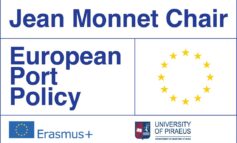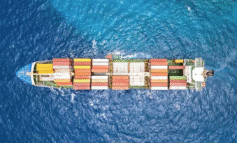Since the inception of China’s Belt and Road Initiative (BRI) in 2013, the associated infrastructure and transport and economic corridor developments have been widely addressed in the research field of transportation, logistics, and supply chain management. Such developments open windows of opportunity for accommodating trade flows in new or upgraded intermediate hub nodes and gateway locations along the BRI corridors.
The latest portstudy of PortEconomics co-director Theo Noteboom, co-authored by Paul Tae-Woo Lee (Zhejiang University, China), Zhi-Hua Hu (Shanghai Maritime University, China), Sangjeong Lee (National University of Singapore, Singapore) and Xuehao Feng (Zhejiang University, China), aims to propose strategic locations for global logistics distribution centers (LDCs) along the Belt and Road from the viewpoint of China, considering regional economic and trade blocks, maritime transport routes, China’s overseas port developments, China Railway Express services, trade conflicts between China and US, and deteriorated mobility of resources and human power caused by COVID-19.
The authors present a set of strategic locations for establishing LDCs by analyzing qualitative and quantitative facility location factors supported by the findings in the existing literature. Eight locations for global LDCs are identified in the Sub-Saharan region, Sri Lanka, the Middle East, Northern Oceania, Southern Europe, Northern Europe, and key dry hub port locations in Minsk, Belarus and Northeast Asia along the Silk Road Economic Belt. Furthermore, we present a research agenda with applicable methods.
The portstudy published in the Transport Policy scientific journal and can be found in the following link.












